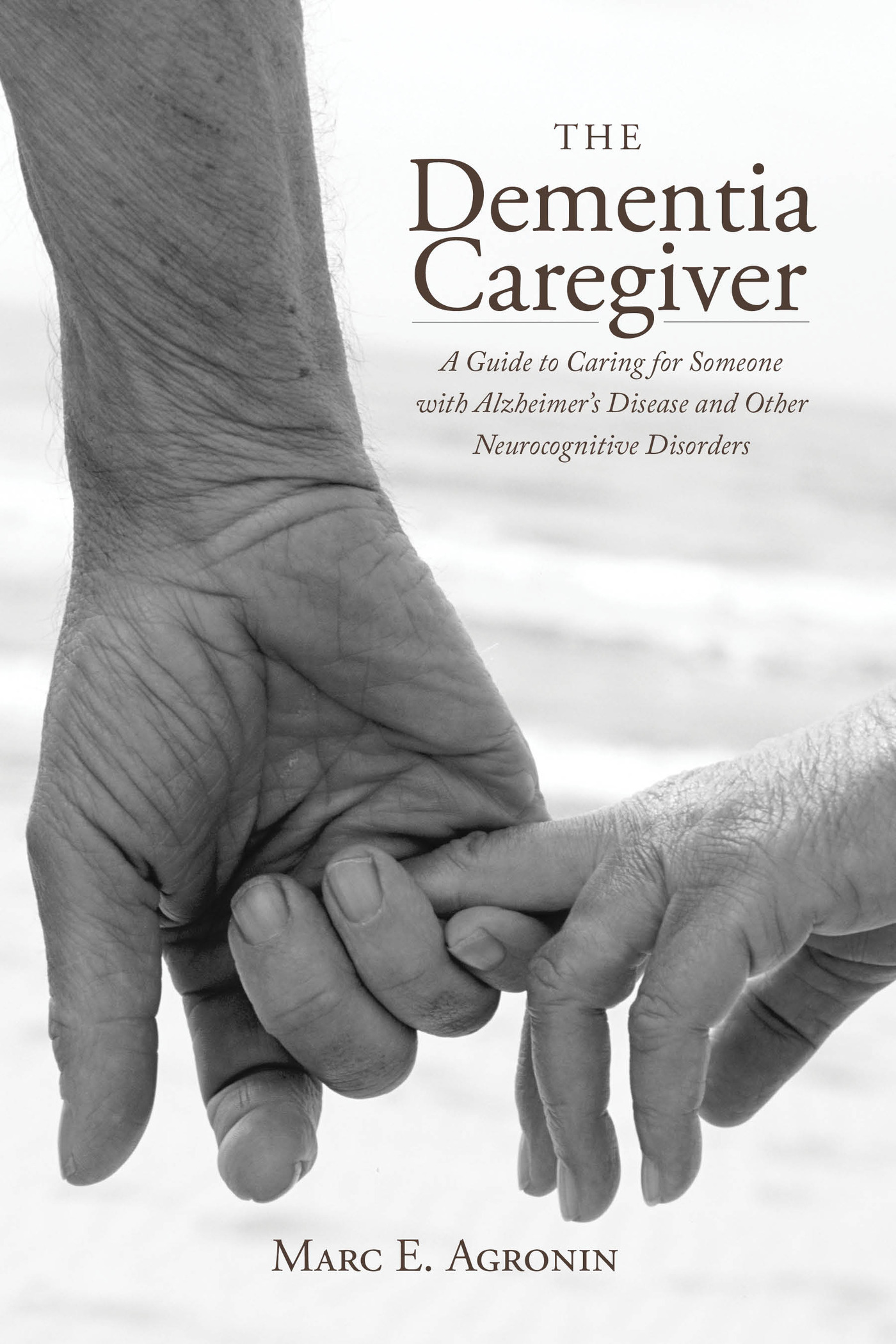The Dementia Caregiver
The Dementia Caregiver
A Guide to Caring for Someone with Alzheimer's Disease and Other
Neurocognitive Disorders
Marc E. Agronin
ROWMAN & LITTLEFIELD
Lanham Boulder New York London
Published by Rowman & Littlefield
A wholly owned subsidiary of The Rowman & Littlefield Publishing Group, Inc.
4501 Forbes Boulevard, Suite 200, Lanham, Maryland 20706
www.rowman.com
Unit A, Whitacre Mews, 26-34 Stannary Street, London SE11 4AB
Copyright 2016 by Marc E. Agronin
All rights reserved. No part of this book may be reproduced in any form or by any electronic or mechanical means, including information storage and retrieval systems, without written permission from the publisher, except by a reviewer who may quote passages in a review.
British Library Cataloguing in Publication Information Available
Library of Congress Cataloging-in-Publication Data
Agronin, Marc E.
The dementia caregiver : a guide to caring for someone with Alzheimer's disease and other neurocognitive disorders / Marc E. Agronin.
pages cm. -- (Guides to caregiving)
Includes bibliographical references and index.
ISBN 978-1-4422-3191-7 (cloth : alk. paper) -- ISBN 978-1-4422-3192-4 (electronic)
1. Dementia--Handbooks, manuals, etc. 2. Dementia--Patients--Care--Handbooks, manuals, etc. 3. Caregivers--Handbooks, manuals, etc. I. Title.
RC521.A38 2015
616.8'3--dc23
2015015411
 TM The paper used in this publication meets the minimum requirements of American National Standard for Information Sciences Permanence of Paper for Printed Library Materials, ANSI/NISO Z39.48-1992.
TM The paper used in this publication meets the minimum requirements of American National Standard for Information Sciences Permanence of Paper for Printed Library Materials, ANSI/NISO Z39.48-1992.
Printed in the United States of America
Acknowledgments
Since 1999 I have had the distinct honor to serve as the psychiatrist at Miami Jewish Health Systems, one of the largest providers of long-term care services in Florida. The patients, caregivers, and colleagues with whom I work on a daily basis represent the breathtaking mosaic of ages, backgrounds, and cultures in the Miami area. We bring all of our sacred differences and strengths together in a common mission to enrich the lives of those individuals for whom age and cognitive and physical decline have brought great challenges. We learn from one another, and although I enter the room as a doctor hoping to heal both patient and caregiver, I always end up leaving the room as a person who is humbled by their courage and dedication. It is my sincere hope that I have successfully distilled all that they have taught me into a helpful guide for current and future caregivers.
I wish to acknowledge the many colleagues at Miami Jewish Health Systems who work with me to carry out our important mission. Several exemplary role models for working with caregivers include Dr. Brian Kiedrowski, Dr. Mairelys Martinez, Dr. Amina Rivero, Leslee Geller, Jose Macias, Niurka Colina, Alex Gomez, Dr. Sajid Lopez, Dr. Stephen Scheinthal, and Dr. Alan Cherkasky. My gratitude goes out to Judy Lusskin for helping to build our caregiver support program. Jeffrey Weinstock and Marcie Ersoff reviewed the ideas in this book and offered key suggestions. I am blessed to have the constant love and support of my wife Robin; my sons Jacob, Max, and Sam; my parents Ron and Belle Agronin; and my in-laws Fred and Marlene Lippman.
I am particularly grateful to Suzanne Staszak-Silva and her staff at Rowman & Littlefield for giving me the opportunity to write this book and for shepherding me through the process.
Introduction
Becoming a caregiver for someone with Alzheimers disease or another neurocognitive disorder can be an unexpected, undesirable, underappreciatedand yet noblerole. It is heartbreaking to watch someone lose the very cognitive capacities that once helped to define them as a person. But because of the nature of these disorders, the only way to become an effective caregiver and cope with the roles many daily challenges is to become well-informed about the disease. That is the point of this book. With the right information, resources, and tips on caregiving and working with professionals, you can become your own expert. This is not to imply that you are on your own; quite the contrary! There is a world of people, programs, and other materials out there to help, beginning right here in these pages.
This book is written for anyone serving as a caregiver for an individual with impairments in memory and other cognitive abilities. When these impairments in brain function are permanent, we have traditionally used the term dementia (from the Latin for without a mind) to describe the overall disease. The new term neurocognitive disorder was developed to emphasize the role of both brain (neuro) and mind (cognitive), as well as to get away from some of the negative and misleading connotations of dementia. The most common form of neurocognitive disorder (NCD) is Alzheimers disease (AD), accounting for nearly 70 percent of all cases. The definitions of each NCD and differences between them will be provided in chapters 3 through 8. Keep in mind, however, that nearly all of the caregiving tips and resources provided in this book apply to every NCD.
What Is a Caregiver?
Eventually, every individual with AD or another NCD will need some assistance, ranging from simple reminders and redirection in mild cases to frequent monitoring and scheduling for moderate cases to 24-hour one-on-one, hands-on care for severe cases. A caregiver is someone who has the responsibility for providing that care. In this book I focus on the nonprofessional or lay caregivertypically a spouse or adult childalthough this book will also be helpful for companions, aides, care managers, and others who work with cognitively impaired individuals. In addition to its focus on individuals with NCDs, this book reviews many of the personal challenges that caregivers themselves face, such as depression, guilt, and burnout, and offers important suggestions and resources.
How to Use This Book
This book is designed to be versatile, providing comprehensive yet concise information on the essentials you need to know about AD and other NCDs, along with practical suggestions and resources needed in the moment. Here is a quick guide to using the book:
If you are a new caregiver for someone with an early or mild NCD, it is important to know exactly what type and degree of cognitive impairment he or she is suffering from, have a good idea of the diagnosis and possible course, and learn basic strategies to maximize or boost brain function. This is covered in chapters 1 through 9.
If you have been a caregiver for some time and already know the general diagnosis, the most helpful parts of the book begin with chapter 10 on moderate disease stages and continue through chapter 18 to encompass all of the major caregiving strategies, associated emotional and behavioral problems, important legal issues, working with long-term care, and key resources.
If there are changes in the impaired person in terms of cognition, behavior, or emotion, as is common and expected with a progressive NCD, review chapter 2 on the evaluation (or re-evaluation in this case), chapters 12 and 13 on mood and behavioral issues, and chapter 14 on dealing with medical issues.
If you are a caregiver for someone with severe NCD, chapter 11 discusses direct caregiving issues, chapter 14 covers common medical issues, and chapter 17 covers working with long-term care.
Next page
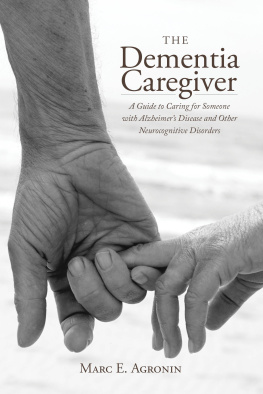
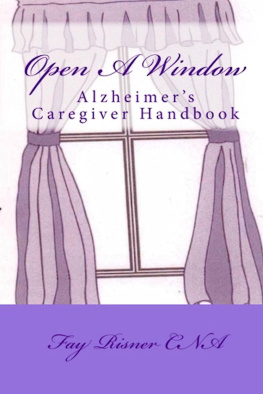
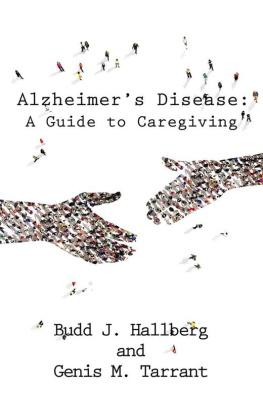

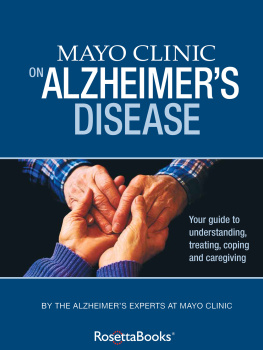
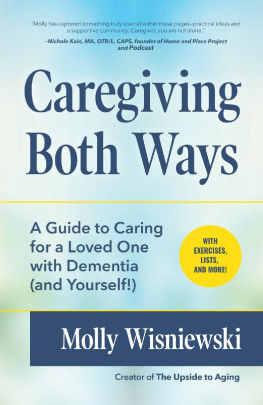
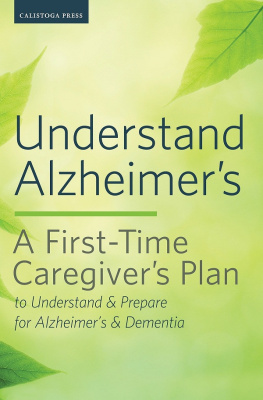
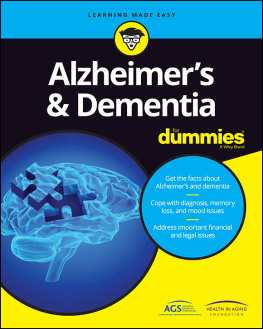
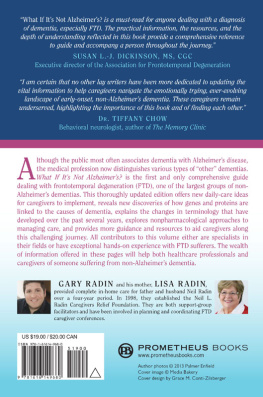
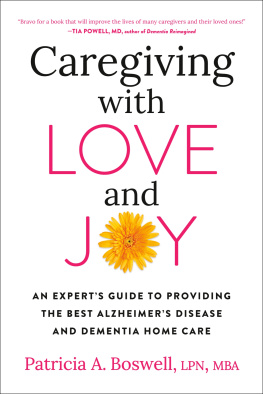
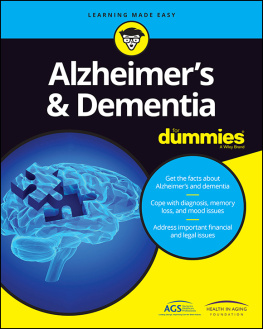
 TM The paper used in this publication meets the minimum requirements of American National Standard for Information Sciences Permanence of Paper for Printed Library Materials, ANSI/NISO Z39.48-1992.
TM The paper used in this publication meets the minimum requirements of American National Standard for Information Sciences Permanence of Paper for Printed Library Materials, ANSI/NISO Z39.48-1992.